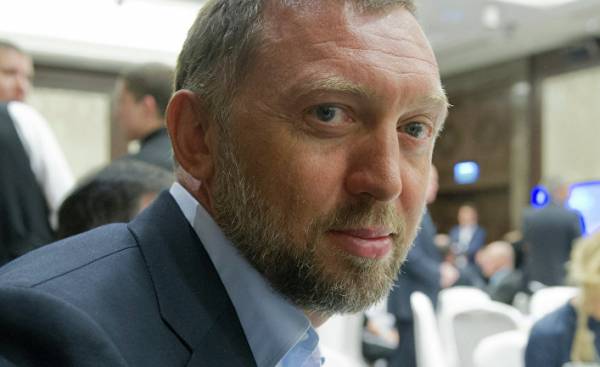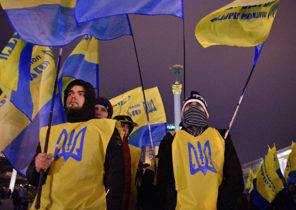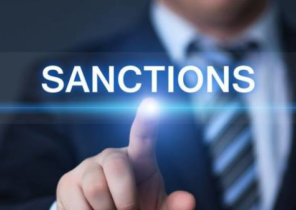
According to representatives of the Congress, Oleg Deripaska, the Russian oligarch who in the past was closely connected with the former head of the election headquarters of the President of trump offered to give evidence to committees of Congress in their investigation of Russian interference in presidential elections in 2016, however, the conditions that he put forward, did not suit the Congress.
The proposal of Mr. Deripaska came amid growing concerns over his relations with Paul Manafort (Paul Manafort), one of several associates of Mr. trump, against whom the FBI is conducting an investigation in connection with allegations of alleged collusion between the Russians and representatives of the election headquarters of Mr. trump. In the mid-2000s years, Mr. Deripaska and Mr. Manafort conducted business together, and Mr. Manafort advised the Pro-Kremlin policies on Ukraine. Later, their relationship soured and turned into a lawsuit.
Mr. Deripaska, an aluminum magnate and a member of the entourage of the President of Russia Vladimir Putin, recently proposed its assistance to committees of Congress for investigation in exchange for full immunity, as reported by three officials of the Congress, who asked to keep their names secret because they do not have the right to discuss this topic publicly. But the committees of the Senate and the house of representatives refused his proposals because of fears that the immunity from prosecution will complicate work of Federal investigators.
Mr. Deripaska, who now lives in Moscow, has long experienced difficulties entering the United States. The state Department refused to issue him a business visa because of suspicions that he may be linked to organized crime, as reported by one former official of the U.S. government. Itself g-n Deripaska denies this information.
However, in that period of time he was able to enter the United States in a different way, as evidenced by court documents, the content of which has not previously been disclosed. From 2011 to 2014, Mr. Deripaska moved to the USA eight times, using the government resolution of the Russian diplomat, as evidenced by his written testimony, which he gave in court in Manhattan. In these court documents, Mr. Deripaska said that his visits were short and that they were associated with the meetings in the framework of the summits of the Big twenty and the UN, not with its business.
Court documents and public records indicate that Mr. Deripaska, the companies which have long has offices in new York, over the last 10 years have expanded their territory in America, buying expensive townhouses in Manhattan and a significant share in the Russian language publication in new York.
The lawsuit was filed by Alexander Gliklad, a businessman of Russian origin, who accused Mr. Deripaska that he enjoyed diplomatic status as a cover to conduct business in the United States. Oligarch denies this accusation. Mr. Gliklad argues that he was entitled to the funds that Mr. Deripaska agreed to pay to settle the case with one of the debtors, Mr. Gliklad. In April, the judge of the Supreme court of new York rejected the argument of Mr. Gliklad that the Manhattan jurisdiction of the court extends to Mr. Deripaska.
Because in the last few months, the experts study in details the relationships and contacts of Mr. Manafort with the Pro-Russian Ukrainian politicians, its business and loans, his former client was in the media spotlight. Mr. Manafort and Mr. Deripaska were partners in the offshore Fund established in 2007 for the purchase of TV and telecommunication assets in Ukraine, where Mr. Manafort advised the then President Viktor Yanukovych. But their relationship soured, and later in the Cayman Islands the trial began.
In March, Mr. Deripaska has stated that he is ready to take part in the hearings in Congress. It happened after the Associated Press published an article which stated that in 2005, Mr. Manafort proposed to him a plan, which contained measures and actions that can bring “enormous benefits to the Putin government” because they will help to influence policy and the media in the United States. Mr. Deripaska has stated that he never entered into such an agreement, and filed a libel suit against the Agency AP. Agency officials stated that they insist on the validity of their materials. Mr. Manafort deny the fact that working for the oligarch, he sought some way to help the Russian government.
There is no reason to believe that the FBI will want to question Mr. Deripaska as part of his investigation of Russia’s intervention in the presidential election in the United States.
Lawyers representing the interests of Mr. Deripaska in his libel suit, did not respond to a request for comment on his proposal to cooperate with congressional committees. Adam Waldman (Waldman Adam), a Washington lobbyist, representing the interests of Mr. Deripaska, also did not respond to our email.
For many years, Putin complained about the failure of the US state Department to extradite Mr. Deripaska a visa. “They’re not giving us anything, do not explain, but he forbid it!” — said Mr. Putin in his interview to the French newspaper Le Monde in 2008.
It is believed that it difficult for the authorities to refuse to issue diplomatic visas to people who have all the necessary documents issued by government departments of their countries. State Department spokesman William Cox (William B. Cocks) said that he has no right to discuss the issuance of visas to specific people. But overall, he said, diplomats who come to the U.S., get a visa, while people doing business in America needs a business visa.
The timing of the diplomatic visits of Mr. Deripaska in the United States is very remarkable, because they started after the FBI broke a secret agreement that allowed him to enter the country. In 2008, despite the objections of the state Department, the FBI agreed to issue him a visa after he has helped this Agency to find a former agent named Robert Levinson (Robert Levinson) who disappeared in Iran a year earlier. In 2009, the FBI terminated the agreement, having decided that, according to former Bureau officials, this arrangement makes no sense.
Mr. Deripaska tried to get a visa in 2015 to testify in court in Manhattan, but the state Department denied him a visa.
Mr. Deripaska, whose fortune is estimated at $ 5.3 billion, global business interests, and he heads a number of companies, including RUSAL and Basic element, which includes companies operating in various fields, from agriculture to aviation and cars.
According to documents in Manhattan court, among the investments of Mr. Deripaska, which he did in the US over the last 10 years, there are two townhouse in Manhattan, which he bought through a shell company belonging to the trust Fund in the British virgin Islands. According to the documents, one of these townhouses in Greenwich village — was purchased in 2006 for $ 4.5 million, and the second two years later for $ 42.5 million. In 2014, Mr. Deripaska acquired a 50% stake in the largest Russian newspaper in the USA “In a New light.”
He also agreed “to maintain a” hedge Fund, which is managed by former world Bank President James Wolfensohn (James Wolfensohn), invested funds through an offshore shell company. Assistant Mr. Wolfensohn declined to comment on the situation. The representative of one of the companies g-on Deripaska in Moscow has not responded to questions about his business connections.







